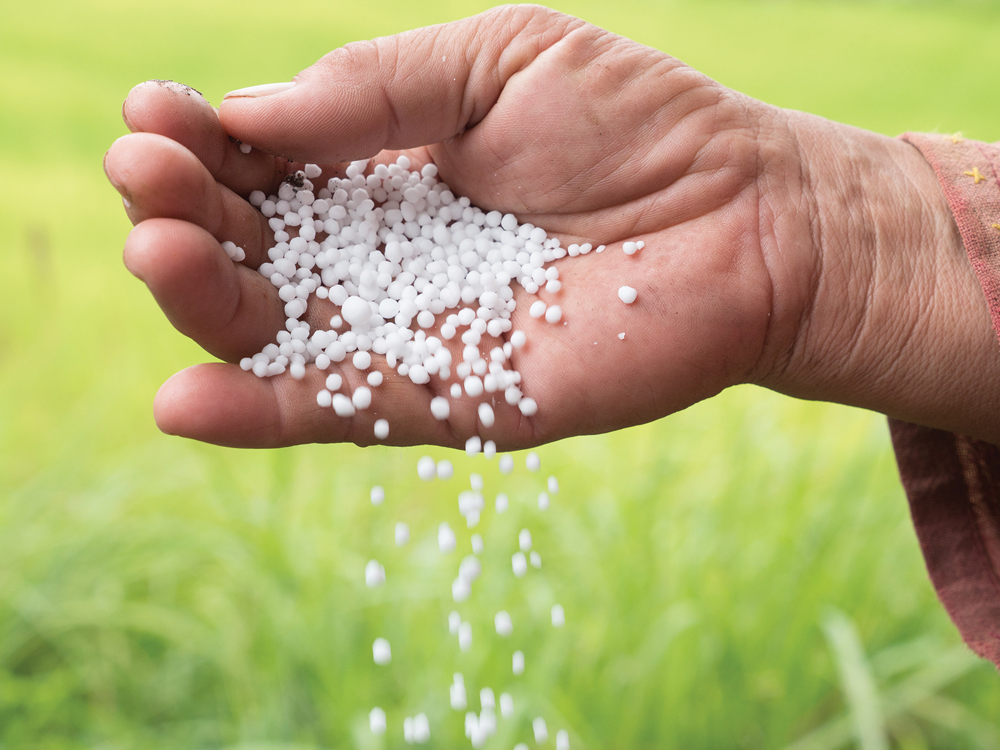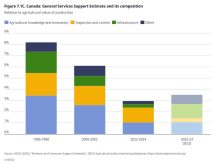Fertilizer manufacturers and retailers are being given a slight reprieve from new incoming regulations for fertilizer labeling.
A transition period for the sector to adjust labels was set to end Oct. 26, but the Canadian Food Inspection Agency now says that pandemic-driven supply chain disruptions have made that target difficult to meet.
The agency says it will shift its priority to promoting compliance rather than enforcing the new rules. This will apply to what it calls the “worst hit” product categories, mainly among “downstream producers” that perform blending and packaging of fertilizer products, and which have dealt with significant supply chain disruptions and registration backlogs.
Read Also

AAFC organic research program cut
Canada’s organic sector says the loss of a federal organic research program at Swift Current, Sask., will set the industry back.
CFIA says it still expects companies to demonstrate their “intent to comply by submitting their applications early.”
The CFIA counts early submissions as any sent prior to Nov. 3, 2022. Applications submitted by then have had time for a first review, the agency said.
WHY IT MATTERS: Extensions aim to lower the burden on companies trying to change their labelling while also dealing with value-chain issues.
Those early applicants have been given a further 24 months of grace to get their labels in order.
Early-applying upstream products, which must have their labels updated before downstream producers can complete their part, will be granted a one-year “compliance promotion continuum” to make packaging compliant with new regulations.
Applications are meant to identify any potential safety risks to plants, animals or humans, pursuant to Fertilizers Act regulations. Not all products will require registration, only those to which the CFIA’s registration triggers apply.
This includes products containing:
- a substance produced by or derived from a living organism;
- a pesticide;
- a supplement that is not registered and is not set out in the List of Primary Fertilizer and Supplement Materials;
- a registered supplement, if the directions for use of the product are not consistent with those of the registered supplement;
- a micronutrient fertilizer that is not registered; and
- a registered micronutrient fertilizer, if the directions for use of the product are not consistent with those of the registered micronutrient fertilizer.
“If a significant safety risk is identified during the first review, the registration will be denied and [the] applicant will have to resubmit in order to import or sell the product legally in Canada,” a May 3 notice from the CFIA read. “This will reduce safety risks associated with unassessed products reaching the marketplace.”
Safety risks could include contaminants deemed harmful to humans or the environment, or harmful microbial products. This could include dioxins or heavy metals above safety thresholds and harmful microbial products, among other issues, the CFIA said.
It defined compliance promotion as “consultations, communication, information sharing, tools and processes to help regulated parties understand the regulatory requirements.”
Rule changes
The 2020 amendments to the label rules included removal of exemptions for specialty fertilizers, updates to the definition of the term ‘supplement’ and a requirement for registrations and renewals to be submitted in accordance with regulations.
Fertilizer Canada has been working with the CFIA to develop strategies since amendments were released in 2020.
“The fertilizer industry has worked to provide essential goods to Canadian farmers and has continued to be a major Canadian export. The global pandemic has shown that Canadians need to ensure food security and the necessity of industry-government partnerships,” a 2020 release from the industry group read.
Nadine Frost, senior director of scientific and regulatory affairs at Fertilizer Canada, said the changes will be welcome.
“Overall, the regulatory modernization of the Fertilizers Regulations is something that we’ve really supported at Fertilizer Canada and from the perspective of the industry,” she said. “It’s been a long time coming.”
Frost said Fertilizer Canada has been working with the CFIA to determine how to relieve some of the sectors affected the most.
“It’s been a really important process to go through with CFIA and we’re really pleased to see this industry notice being issued,” Frost said.
















